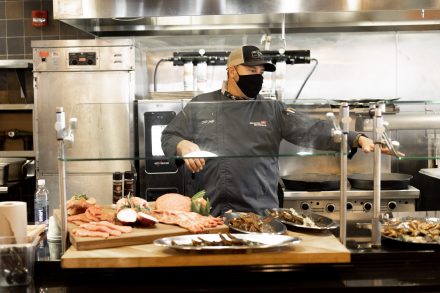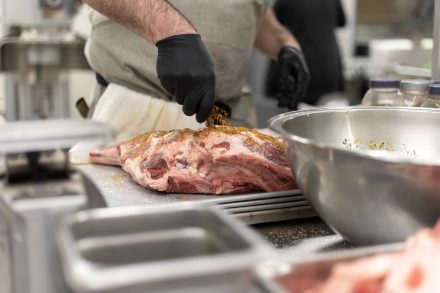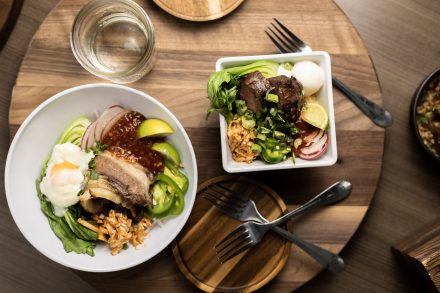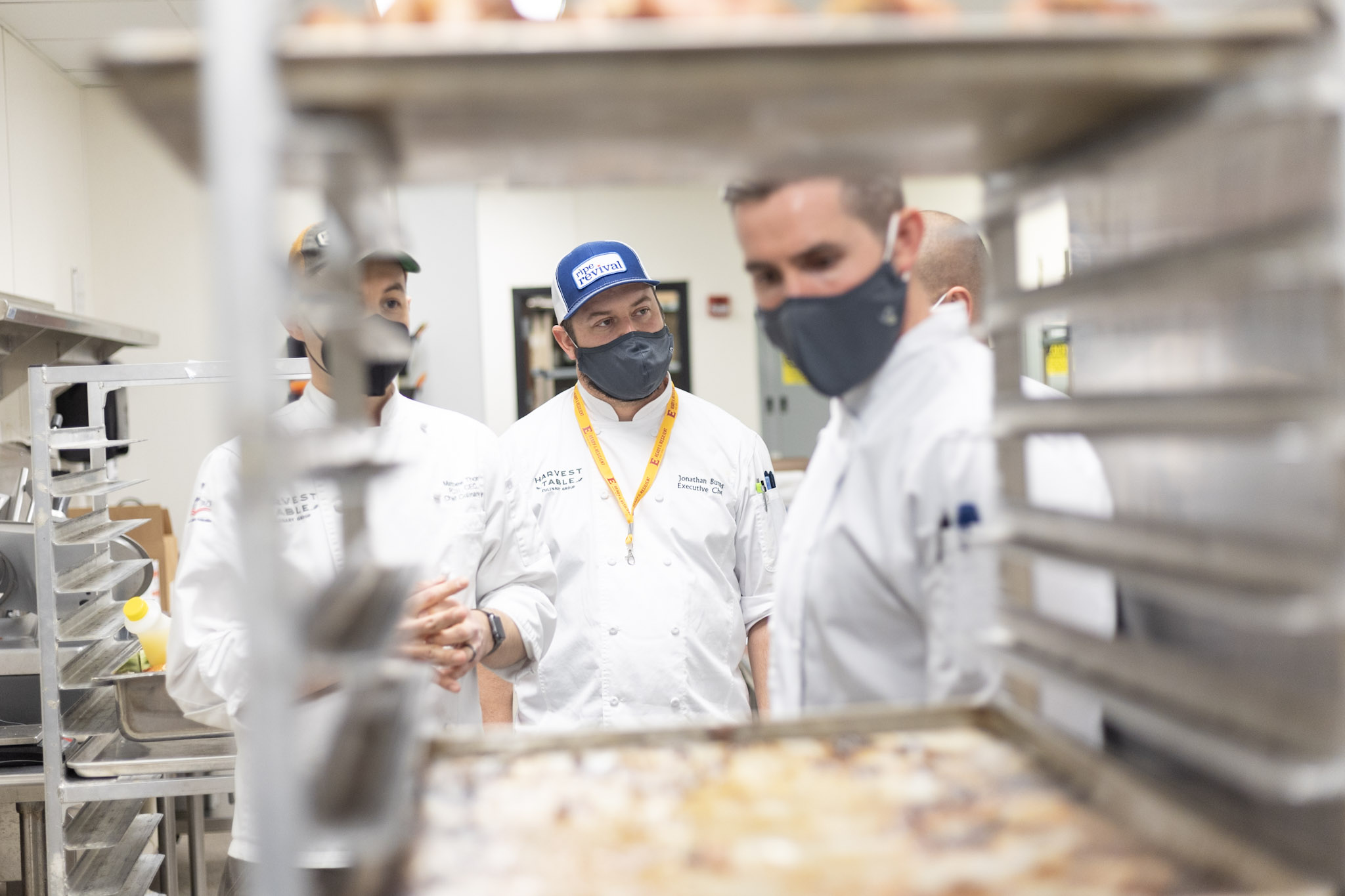The three-day event was the first Culinary Development Session of 2022.
To cut back on the food waste in America, Elon University along with the other seven institutions in the Harvest Table Culinary Group are working on creating new recipes that utilize cuts of meat that are in less demand.
Nine different chefs from all eight Harvest Table institutions — Elon, High Point University, Wake Forest University, Georgetown University, Springfield College, University of Redlands, the University of Rochester and Runk Dining Hall at the University of Virginia — gathered at Elon between Winter Term and the start of Spring Semester for the first Culinary Development Session of 2022.
 “What we wanted to do was to bring chefs from some of those schools together each month at a different location and do a development,” said Casey Claflin, guest experience manager for Harvest Table Culinary Group at Elon. “We were lucky to be chosen as the first site.”
“What we wanted to do was to bring chefs from some of those schools together each month at a different location and do a development,” said Casey Claflin, guest experience manager for Harvest Table Culinary Group at Elon. “We were lucky to be chosen as the first site.”
The monthly Culinary Development Sessions have always been an integral part of the Harvest Table ethos. Due to COVID restrictions, the program had to pause but the strong partnership at Elon allowed for it to resume.
The first summit was held at Elon and focused on whole animal utilization. The goal is to celebrate the whole animal and the uniqueness and value from each cut of meat.
For each chicken breast used, there should also be consideration for what happens to the chicken thigh, feet, beak and offal — not just focusing on harvesting the breast and leaving the rest to “trim” or “scrap.”
With food insecurity at an all-time high and with more than 30 percent of the food supply in America going to waste, Elon is doing its part to help turn the tide.
“With beef, steaks and ground beef are going to be in demand, but how do you use some of those other cuts that aren’t as in-demand so that you don’t waste it,” Claflin said.
 On the first day of the summit, local and national vendors that Elon works with such as Joyce Farms, Brasstown Beef and Niman Ranch came to speak to the chefs about the sustainability benefits of whole animal utilization.
On the first day of the summit, local and national vendors that Elon works with such as Joyce Farms, Brasstown Beef and Niman Ranch came to speak to the chefs about the sustainability benefits of whole animal utilization.
William Dissen, a leading chef in North Carolina on animal and seafood sustainability, gave a demonstration on how to break down a fish and make a fish stew called “a cioppino.”
“The experience was very eye-opening and informative. Just thinking about the different cuts of meat being used in different ways, meeting our vendors and hearing the stories, the whole summit really opened my eyes to the dishes that we could be making each day,” said Ebony Thompson, Harvest Table chef.
The second day saw the chefs putting their creativity to work by developing new dishes from the ingredients they saw from the vendors. Registered dieticians from Harvest Table assisted in the recipe development to ensure they were taking as many allergy considerations as possible and making the necessary substitutions.
On the third day, they presented those dishes to students for feedback.
 “The big hit of the day was the braised lamb curry with tahini sauce and pita chickpeas,” Claflin said. “It might not be considered a prize cut of meat but cooked in the right way it created a really wonderful dish.”
“The big hit of the day was the braised lamb curry with tahini sauce and pita chickpeas,” Claflin said. “It might not be considered a prize cut of meat but cooked in the right way it created a really wonderful dish.”
Some of the other recipes developed were Baja grouper tacos, braised pork shank and ramen with braised beef belly or pork jowl.
One of the paramount reasons for this summit was to make sure they are honoring the animals that go into the food they make, Claflin said.
“We want to help the farmers expand what they can sell and also help our individual restaurants on campus source high-quality ingredients,” Claflin said.



